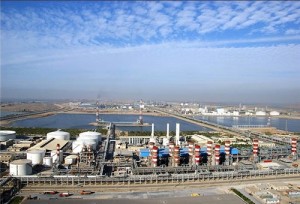 TEHRAN (FNA)- Iran's Oil Ministry approved Nanotechnology Strategic Document in Petroleum Industries in a bid to rank first in this field and create high economic value.
TEHRAN (FNA)- Iran's Oil Ministry approved Nanotechnology Strategic Document in Petroleum Industries in a bid to rank first in this field and create high economic value.According to the approval of the Oil Ministry, 10% of the research budget of the ministry must be allocated to novel technologies including biotechnology, nanotechnology, and membrane technology.
Taking into consideration the importance of nanotechnology, its close and coordinate interaction with the existing technologies, the numerous economical and social effects of this technology, and also its effective role in petroleum, gas, refinery, and petrochemical industries, the Oil Ministry approved Nanotechnology Strategic Document in Petroleum Industry to rank first in the area and create high economic value.
According to the prospects of this document, petroleum industries of the Islamic Republic of Iran shall be a pioneer industry in 2025 with the following characteristics:
��������� Producer of petroleum products based on nanotechnology with high added value;
��������� Consumer of nanotechnology based processes in oil recovery, increasing the performance, reduction of environmental pollutants, quantitative and qualitative improvement of products, and resolving the operational challenges;
��������� Consumer of Iranian nanotechnology based products to increase the performance, decrease the dependency and reduce the costs;
��������� Exporter of nanotechnology based products and services.
Among the objectives of the Document, mention can be made of the management of research and technology plans, production of products according to the needs of the companies, commercialization of research achievements, and developing nanotechnology equipment produced in the country.
Obtaining 27 key technologies has been targeted by the end of 2016, according to the Document. Among these technologies, mention can be made of the following items:
Oil recovery in oil reservoirs by using nanostructured materials, modification of excavation drills by using nano-diamond coatings, the use of nanofilters in turbines and operational units, the use of carbon nanotubes and graphene in excavation cement, the use of nanocatalysts in HDS processes, thermal nano-insulations and nano-emulsion.
By Fars News Agency
The Iran Project is not responsible for the content of quoted articles.










